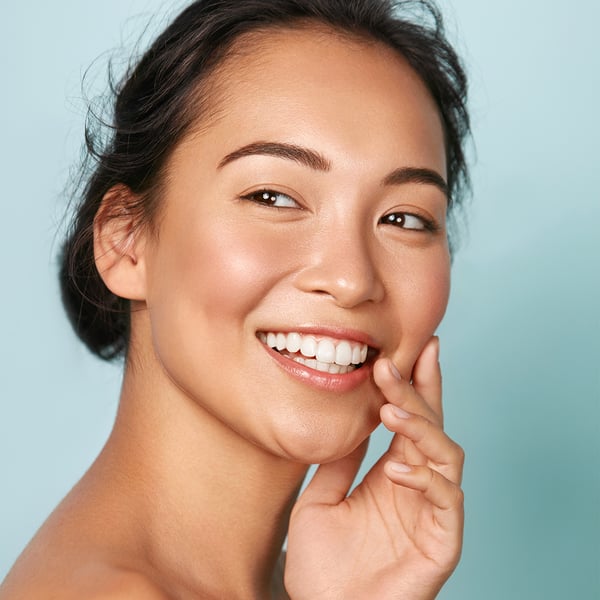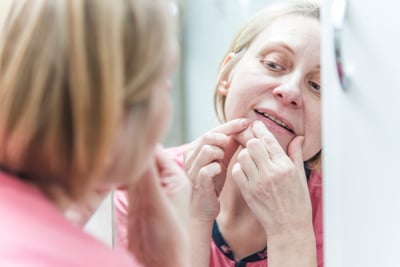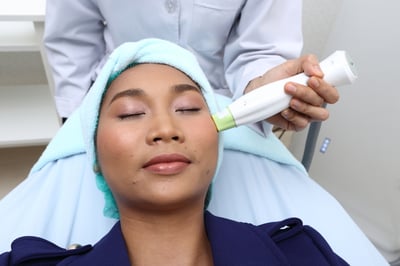
Retinol is an ingredient that can change your skin. We’re talking fairy godmother turning back time with one simple ingredient change in your skin’s appearance. Interested? We thought so…
What is retinol?
When you hear the term retinol, it’s actually referring to retinoids. Retinoids come in a number of different types and strengths, all of which are derived from Vitamin A. You can get a retinol cream or retinol serum that is prescription level – often used to treat acne or aging, or you can get retinol product at the beauty store, too. Retinoids are a powerful active ingredient, and if the wrong strength is used it can irritate the skin and be ineffective.
What are the benefits of using retinol?
According to Dr. Gabriela Maloney, board-certified dermatologist with Forefront Dermatology, “Retinol creams really are some of the best and most studied skincare options when it comes to anti-aging. Retinol increases cell turnover and stimulates collagen and elastin production, therefore diminishing and smoothing fine lines and wrinkles, reversing sun damage, photoaging, and evening out dark spots and rough skin tones. Prescription-grade retinol can also help with acne and cystic acne.”
Is retinol for all skin types?
“If you suffer from rosacea, eczema, or psoriasis, it is best to avoid retinol as it may be too aggressive for your sensitive skin,” added Dr. Maloney. “It can lead to increased inflammation, dryness, and sensitivity. If you have one of these conditions but are interested in retinol, it is best to discuss your goals with a board-certified dermatologist first before proceeding with a new product.”
How do I use retinol?
According to Dr. Maloney, with a retinol cream or retinol serum it is important to slowly introduce it to your skincare routine, starting with a pea-sized amount at night once a week and building over time. If you skip this process, you should expect redness, dryness, and flaking. Retinol can be used all over the face, but avoid the eyelids and corners of the eyes and mouth as these areas are extra sensitive and can lead to burning and irritation.
When using retinol you must be vigilant in sunscreen application. While regular sunscreen use is always recommended, it is particularly important when using a retinol product. The active ingredient, retinoids, increases cell turnover making skin temporarily more fragile and photosensitive.
Skincare routines customized to you
The board-certified dermatologists at Forefront Dermatology are here to customize a treatment plan for your skin goals and concerns. They will walk you through the best morning and nightly routine and guide you to the products that will work best for you. Find a location near you and schedule a skincare consultation today.





